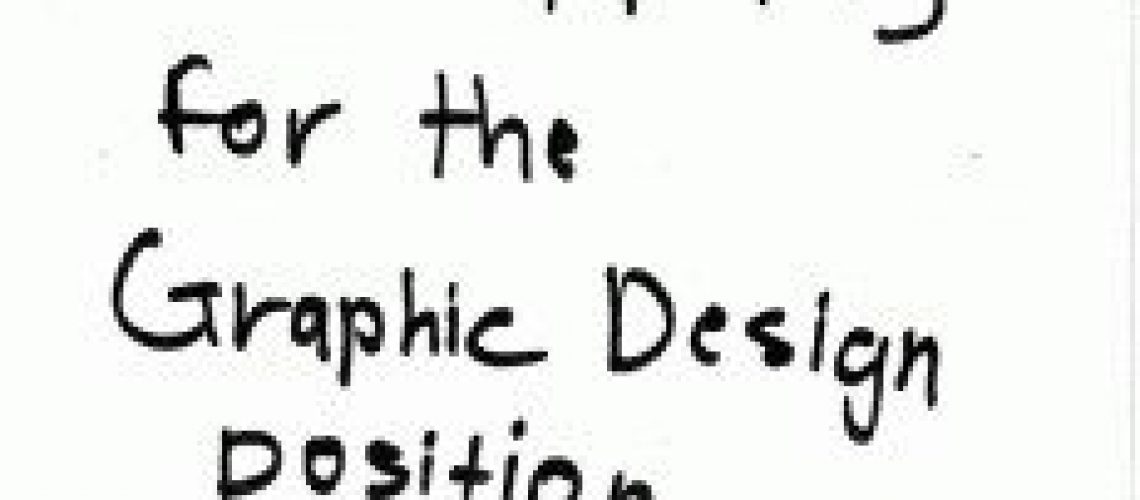
5 to 7 seconds is the amount of time the average recruiter, internal or agency, will give your CV if they don’t see something that catches their eye. It doesn’t matter how good you are, or think you are at your chosen vocation, if you can’t get it across in less than 10 seconds, you won’t get a call.
So how do you write a CV that 1: Hopefully catches their eye and 2: Gives them reason to read it a second time, more thoroughly?
Now I would like to start this conversation off with this disclaimer: There is no industry standard for CV writing. There are CV’s that work and CV’s that don’t and CV’s that work in one market that don’t work in another. The following “rules” to CV writing are written purely from my perspective as someone with a number of years of hiring manager experience and 18 months in the high volume recruiting market. My colleagues here in the office have some slightly differing ideas on the subject and will be posting their own versions of what makes a good CV to them in later blogs. We hope to stir up some solid conversation around CV formats that have been successful and those that haven’t. If you would like to contribute to the conversation I heartily encourage you to do so! If you’d like to share your own CV as an example of formatting you prefer, even better!
Now to the story!
As I said, 5 – 7 seconds is the amount of time you have to catch a recruiter’s eye. Here are some ideas I have come up with while helping a friend to do just that. She has been applying for jobs left and right and was not getting call backs or interest despite the time and effort she was going to and some great industry experience with a leading player in her market. I suggested she have a look at her CV to see if we could come up with some ideas as to why her applications weren’t hitting the money spot.
I’ve been working in recruitment for a while now and have literally seen thousands upon thousands of CV’s. And while I don’t think of myself as an expert CV writer, I certainly have some ideas on what makes me look deeper into a CV and what makes me want to give a candidate a call to find out more. The following ideas didn’t just hit me like a thunderbolt from a clear sky, they’ve been percolating like a good cup of coffee for some time (Come on, there had to be one coffee reference in my first Transparency blog post – Though I’m sure the Daniels will be in an uproar about me using percolating and good coffee in the same sentence…I’m sorry guys, it just worked).
…now back to the subject at hand
I’ll try to make this easy to read and with as much insight as I can without boring you with this much written about subject. There are a number of things to talk about so I’ll deliver you a “rule” on CV writing each day or so on our blog site.
Firstly, let’s touch quickly on what a CV is designed to do: It’s designed to get you a follow-up phone call and from there an interview. It’s not a silver bullet.
Rule #1
Review your CV for each and every role you apply for and rewrite it if necessary. Nothing makes a recruitment consultant vague out faster than irrelevant information. If you are applying for an IT Manager role requiring 5 years industry experience, don’t add your high school work experience time spent with a mobile vet. It may make an interesting talking point once you have an interview, but for the purposes of your CV it will just make the recruiter focus on the wrong thing. Making sure your CV is relevant to the role you are applying for shows you care and that you read the Ad. Recruitment consultants are by and large passionate people, they care about finding you work and expect you to care too.
Things to consider when reviewing your CV:
Start your CV with the usual name and contact details. You can add a career objective at this stage if you like though keep it short, sweet and to the point or it will be skipped. E.g.—
An experienced business development and sales manager with expertise in strategic planning, sales development, campaign management and customer engagement. With over 15 years’ experience within the telecommunication industry, I am committed to delivering increased revenues, developing high performing teams, and achieving business objectives.
Continue now with your applicable major skill sets in relation to the role you are applying. No more than 4 or 5 of these. The idea of this is to show you have a solid understanding of the core principals of the position you are applying for versus your capabilities. E.g.—
E.g. Strategic planning – The ability to identify both sales and revenue growth opportunities and gaps in performance by using local insights, data analysis and leveraging internal/external stakeholder relationships; plan and implement strategies to bridge gaps and take advantage of opportunities to drive incremental sales and revenue growth.
That’s it for today’s blog, hopefully you’re still with me and hopefully this has helped you with ideas as to how to start to approach your next CV review/rewrite. I will put up another rule in the next few days to continue the CV saga. Stay tuned…
Cheers,
James

